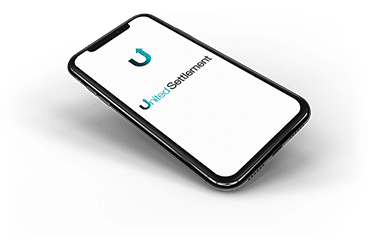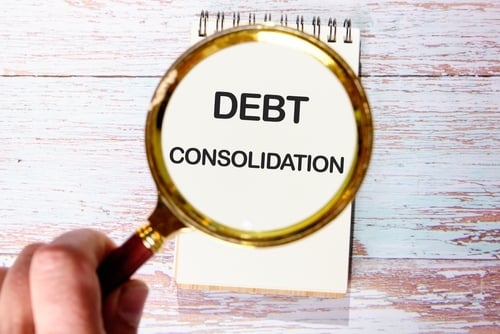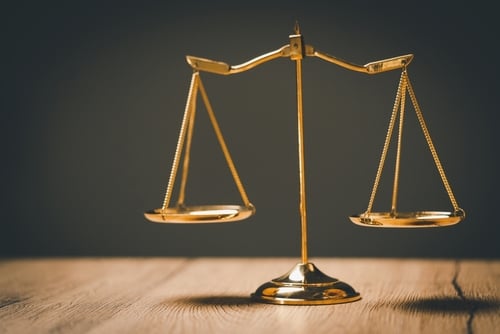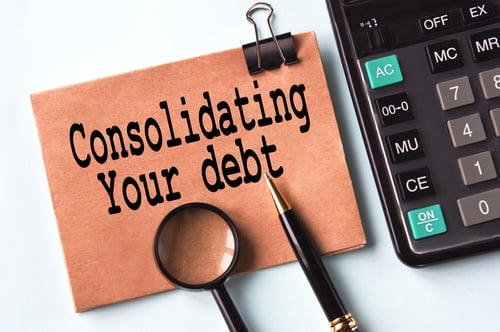Can I Get a Debt Consolidation Loan with Bad Credit?
If you are burdened by revolving high-interest credit card debt from a variety of sources, a debt consolidation loan can represent a possible debt relief solution. A debt consolidation loan can be utilized to pay off a number of different creditors all at once and typically results in a lower blended overall interest rate while simplifying the monthly payment process.
However, being granted approval for a debt consolidation loan at an appealing interest rate and favorable terms isn’t always easy, particularly if your FICO credit score is weak. Before embarking on the path toward a debt consolidation loan, be sure to speak with a skilled credit counselor from a reputable credit counseling agency who can conduct an in-depth phone interview with you regarding your financial situation as it relates to your income, expenses and debt levels.

Can I get a consolidation loan with bad credit?
Yes, you can get a consolidation loan with bad credit. However, the interest rate and terms may be less favorable than if you had good credit. You should shop around for the best rates and terms before you decide on a lender.
What credit score is needed for debt consolidation?
Debt consolidation companies typically require a credit score of at least 640 in order to qualify for their services. However, some companies will work with consumers who have a lower credit score, but they may charge a higher interest rate.
Table Of Contents
- Debt Consolidation vs Debt Settlement
- Credit Repair vs Debt Consolidation
- Get a Big Picture View of Your Debt
- The First Option to Pursue
- Do You Have an Existing Credit Union Relationship?
- Additional Options for Relieving Debt
- Alternatives to a Debt Consolidation Loan
- Contact us: United Debt Settlement
Debt Consolidation vs Debt Settlement
Debt consolidation is different than debt settlement. Debt consolidations consists of getting a loan for lower interest rate than your current debt. Once you get the loan you pay off your current debt (which has a higher interest rate) and in turn save money which is the difference in the interest. A client that enrolls in debt settlement often does not have an option to take out an additional loan.
Debt settlement often reduces the debt, so the total paid is less than whats actually owed. With debt consolidation the total balance is paid. Its important to know both debt consolidation and settlement are hardship programs and will have a negative affect on your credit score.
ABC
Credit Repair vs Debt Consolidation
Credit repair and debt consolidation services are two different options that consumers can use to get out of debt. Credit repair services work to improve a consumer’s credit score by removing negative items from their credit report. Debt consolidation services work by combining all of a consumer’s debts into one monthly payment.
Both credit repair and debt consolidation have their pros and cons. Credit repair can be helpful in improving a consumer’s credit score, but it is not always successful. Debt consolidation can help consumers to pay off their debts faster, but it may not be the best option for everyone.
Ultimately, the best way to decide whether credit repair or debt consolidation is right for you is to compare the costs and benefits of each service.
Get a Big Picture View of Your Debt
Begin by listing all of your outstanding credit card balances, interest rates and minimum monthly payments. Also, make note of other unsecured debts you may have such as personal loans and student loans as they may affect whether or not you are eligible for a debt consolidation loan. Get a sense of the total amount you owe, your combined monthly payments, as well as the amounts that are applied to interest expense and principal. You should also visit Annual Credit Report to request a free credit report from any of the three national credit reporting bureaus (Experian, Equifax and TransUnion) and examine your report for any errors that may be negatively impacting your credit score and profile.


The First Option to Pursue
Even in some instances, when a credit profile is less than robust, a debtor may still qualify for a low (or zero percent) interest rate promotional credit card that can be utilized for transferring over and consolidating high-interest rate balances. The benefits of low interest rate promotional balance transfers for debt relief are fairly obvious – if a debtor possesses the ability to pay off a significant amount of debt within the promotional APR window (which typically range from twelve to twenty-four months).
This can result in a saving of hundreds, if not thousands of dollars in interest expense. However, depending upon prevailing market conditions, balance transfer fees will range between 2%-5%, and it’s unrealistic to expect the promotional APR to apply to purchases – so be especially careful not to use the card for anything other than balance transfers. Get completely clear about the length of the promotional APR period as well, so as to carefully manage the debt balance as the end of the promotional period approaches.
Do You Have an Existing Credit Union Relationship?
For those who have an existing relationship with a credit union, now is the time to leverage it. Depending on where you reside in the United States, credit unions often play a prominent role in the local community. And whereas banks and credit cards often approach lending decisions in a somewhat cold and clinical manner, credit unions can take into account the duration of an existing customer relationship, as well as the personal qualities associated with that relationship. Indeed, when considering extenuating circumstances and/or financial emergencies associated with a long-standing customer with whom they share a positive relationship, credit unions can make surprisingly favorable lending decisions.


Additional Options for Relieving Debt
There are a number of debt consolidation lenders available to individuals with bad credit. However, it is important to bear in mind why it is that you are seeking a debt consolidation loan in the first place – to secure lower interest rates and reduce monthly payments while simplifying the debt re-payment process.
It simply doesn’t make financial sense to secure a debt consolidation loan at a higher blended interest rate than you are currently paying in your various monthly payments to your creditors. Nonetheless, those lenders that you can research include PersonalLoans.com, BadCreditLoans.com, SignatureLoan.com, Upstart, and One Main Financial. Many of these lenders operate in the sub-prime lending space, granting debt consolidation loans (often at high interest rates, however) to individuals with poor credit.
Alternatives to a Debt Consolidation Loan
Before enrolling in debt consolidation or taking a debt consolidation loan be sure to seek all other options. If you can get a lump sum try calling the creditor yourself and negotiating a one time settlement. If you can contact friends or family for a loan to pay off your debt that is a better option then debt consolidation or settlement which will not have as much of an impact on your credit score. Debt management is important to be successful in achieving financial freedom.


Contact us: United Debt Settlement
Remember, it makes little sense to secure a debt consolidation loan that comes with an interest rate of 20%-36% attached to it, as this likely defeats the purpose of securing a debt consolidation loan in the first place. Speak to the experienced counselors and debt relief specialists at United Settlement (888) 574-5454, and together we will examine the details of your specific financial situation and explore all avenues available to address your need for a debt consolidation loan – even if you have bad credit.
A skilled counselor will help you determine whether a debt consolidation loan, debt management program, debt settlement program, or possibly even filing for bankruptcy would be the best course of action for you to pursue.
Are you in debt? we can help
FAQs
It is possible to get a debt consolidation loan with a 600 credit score. However, the interest rate may be higher than if you had a better credit score. You may also need to put down a larger down payment. Speak to a lender to find out what your options are.
The first step is to create a budget and stick to it. Figure out what you can live without and what you need to survive. Cut out any unnecessary expenses and put that money towards your debt. You can also try to get a part-time job or sell some of your belongings to make extra money. If you have bad credit, you can try to get a loan from a friend or family member, or you can look into credit counseling services.
Debt consolidation can improve credit if it results in the elimination of high-interest debt and the establishment of a solid payment history. Debt consolidation typically involves the transfer of multiple high-interest debts into a single, more affordable loan. This can simplify debt repayment and lead to improved credit scores, as long as all payments are made on time.
Debt consolidation will generally stay on your credit report for seven years. However, if you are able to successfully consolidate your debt and improve your credit score within that time period, the impact of the consolidation will be lessened.
Get Debt Relief
Speak with licensed debt specialists dedicated to guiding you toward financial stability every step of the way.

Ready To Get Started?
See if you qualify for debt relief. Get a Free savings estimate to see how quickly you can be debt free.
Embrace financial freedom with our tailored solutions, expert guidance, and unwavering commitment to your success.
Experienced Professionals
Our experienced team has helped thousands of clients successfully eliminate debt and regain financial freedom.
Customized Solutions
We know every financial situation is different, so we design personalized debt relief plans to fit your specific needs and goals.
High Success Rate
Our proven debt relief strategies deliver real results. With a strong track record of success, we help clients achieve lasting financial stability.
Confidential Consultation
Your privacy is our priority. All debt relief consultations are 100% confidential and handled with the highest level of discretion.
Explore other blogs











